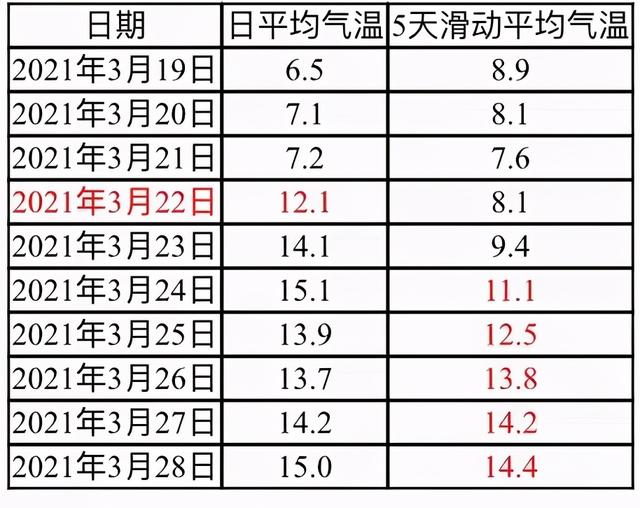单词是外语学习和交流的基本要素,是语言的基本单位,在语言文化交流中起着重要作用今天,我把人教版初中英语九年级U4重点单词推荐给大家,学习开心哦,我来为大家讲解一下关于人教版初三英语u4单词?跟着小编一起来看一看吧!

人教版初三英语u4单词
单词是外语学习和交流的基本要素,是语言的基本单位,在语言文化交流中起着重要作用。今天,我把人教版初中英语九年级U4重点单词推荐给大家,学习开心哦!
1.humorous有幽默感的;滑稽有趣的,形容词。
【构词】humor幽默,名词。
2.silent不说话的;沉默的,形容词。用法:keep silent保持沉默;保持安静。
【构词】silence沉默;无言,名词。用法:in silence沉默地;寂静地;Speech is silver, silence is golden.雄辩是银,沉默是金。silently悄悄地;静静地,副词。
3.helpful有用的;有帮助的,形容词。用法:be helpful to sb.对......有帮助的;be helpful for sb.对......有益。
【构词】help帮助,动词和名词。用法:help sb. to do sth./help sb. do sth./help sb. with sth.帮助某人做某事。
4.score得分;进球,名词和动词。用法:(1)What’s the score?得分是多少?/get good scores取得好成绩。(2)scores of...几十......。如,She has scores of eggs in the basket.(3)Tom scored in the final minute of the game.
5.interview采访;面试,动词。面试;访谈,名词。用法:interview sb.采访......;接见......;和......会晤。give an interview to sb.接见某人。do/have an interview with sb.对......做采访/会见某人。
6.deal(dealt,dealt)对付;对待,动词。用法:deal with应对;处理。
【构词】deal协议;交易;买卖;生意,名词。用法:make a deal 做个交易;have a deal with sb.与某人有交易/协议。
7.shyness害羞;腼腆,名词。
【构词】shy 害羞的;腼腆的,形容词。-ness 可以把原词变成名词。如,good-goodness;ill-illness。
8.dare敢于;胆敢,动词。用法:(1)实义动词,后面接动词不定式。如,I dare not to swim in the sea alone./Do you dare to go with me?(2)情态动词,后面接动词原形,主要用于疑问句、否定句和条件状语从句中,不用于肯定句,除了I dare say(这是固定用法,意思是“我相信,可能,我想是这样。”)。如,I daren’t say that./How dare you say that?/If he dare break the rules, he will be punished.
9.crowd 人群;观众,名词。用法:(1)是集合名词,若用作主语,谓语用单数(看做整体时)或复数(考虑个体成员时)。如,The crowd was quiet./The crowd were running in all directions.(2)a crowd of.../crowds of...(复数名词)一群/一堆/一伙......,若用作主语,谓语用单数(看做整体时)或复数(考虑个体成员时)。如,A crowd of birds are flying in the sky.
【构词]】crowd聚集;挤满,动词。用法:(1)be crowded with...挤满......。如,The meeting room was crowded with people.(2)crowded拥挤的;人多的,形容词。uncrowded不拥挤的;人少的,形容词。
10.ton吨,名词。tons大量;许多。用法:tons of许多;很多,后面接可数名词(表示很多,大量)和不可数名词(表示该名词的吨数)。
11.guard警卫;看守,名词。守卫;保卫,动词。用法:常指保持警惕以防可能的攻击或伤害。guard sb./sth.from...保护某人/某物不受......;guard against...避免......;预防......;防范......。
【构词】guarded有戒备的;被看守着的,形容词。
12.require需要;需求,动词。用法:(1)It requires that...有......的必要。(2)require sth.of sb.对某人有......的要求。(3)require sb.to do sth.要求某人做某事。(4)require后面接宾语从句时,从句中动词用(should) 动词原形。如,The boss required that we (should)keep it secret.(5)sth. require doing sth.=sth. require to be done某物需要......。如,The flowers requires watering.=The flowers requires to be watered.
【构词】requirement要求;必要条件,名词。
13.European欧洲(人)的,形容词。欧洲人,名词(可数)。
【构词】Europe欧洲,名词。
14.African非洲(人)的,形容词。非洲人,名词(可数)。
【构词】Africa 非洲,名词。
15.British英国(人)的,形容词。
【构词】Britain英国,名词。
16.speech讲话;发言,名词。用法:make/give a speech做演讲;发表讲话。speech on/about sth.有关某事的演讲。
【构词】speechless 说不出话来的,形容词。
17.public民众,名词。公开的;公众的,形容词。用法:(1)in public公开的;在别人(尤指生人)面前。(2)public用作名词时,是集合名词,常与the 连用,表示一类人,“公民”。谓语动词一般用单数形式。但是,也可以依据侧重点不同,强调整体时谓语动词用单数形式;强调某些群众时谓语动词用复数形式。
【构词】publicly公然;公开地,副词。
18.seldom不常;很少,副词。用法:具有否定意味,含有seldom的句子相当于否定句,在反意疑问句中,疑问部分要用肯定形式;在句中一般位于系动词、情态动词、助动词之后、实义动词之前。用于句首表示强调时,要主谓部分倒装。如,He seldom goes to the cinema, does he?/She seldom goes out at night./Seldom does she read newspapers.
19.influence影响,名词和动词。用法:往往指对行为、性格、观点等较长时间的、潜移默化的“影响”。have(an)influence on/upon sb.对某人有影响;under the influence of...在......的影响下;influence sb./sth.影响某人/某事;influence sb.to do sth.促使/影响某人去做某事。
【构词】influential有影响的,有势力的,形容词。
20.absent缺席;不在,形容词。用法:be absent from...不在......(地方);be absent in在某地(而不在说话人的地方)。如,She is absent from Beijing.她不在北京。She is absent in Beijing.她外出了,目前在北京。
【构词】absently心不在焉地,副词。absence缺乏;没有,名词。
21.fail不及格;失败;未能(做到),动词。用法:fail to do sth.未能做某事;fail in an exam考试不及格。
【构词】failure失败,名词。如,Failure is the mother of success.
22.examination考试;审查,名词。用法:exam是examination的缩写式。take an examination 参加考试;进行考试。
【构词】examine考试;检验;审查;检查,动词。
23.exactly确切地;精确地,副词。
【构词】exact确切的;正确的,形容词。
24.pride自豪;骄傲,名词。用法:take pride in...为......感到自豪。
【构词】proud自豪的;骄傲的,形容词。用法:be proud of...为......骄傲;感到自豪。
25.general总的;普遍的;常规的,形容词。将军,名词。用法:the general population总人口;the general line总路线;general education普通教育;general knowledge常识;in general一般说来、总的说来;Here’s the report,General Mike.报告在这儿,迈克将军。
【构词】generally通常地;一般地;普遍地,副词。用法:generally speaking一般说来;总的说来。
26.introduction介绍,名词。用法:a letter of introduction一封介绍信;the introduction of... ......的引入。
【构词】introduce介绍,动词。用法:introduce...to sb.把某人或某物介绍给某人;introduce oneself自我介绍。
,




